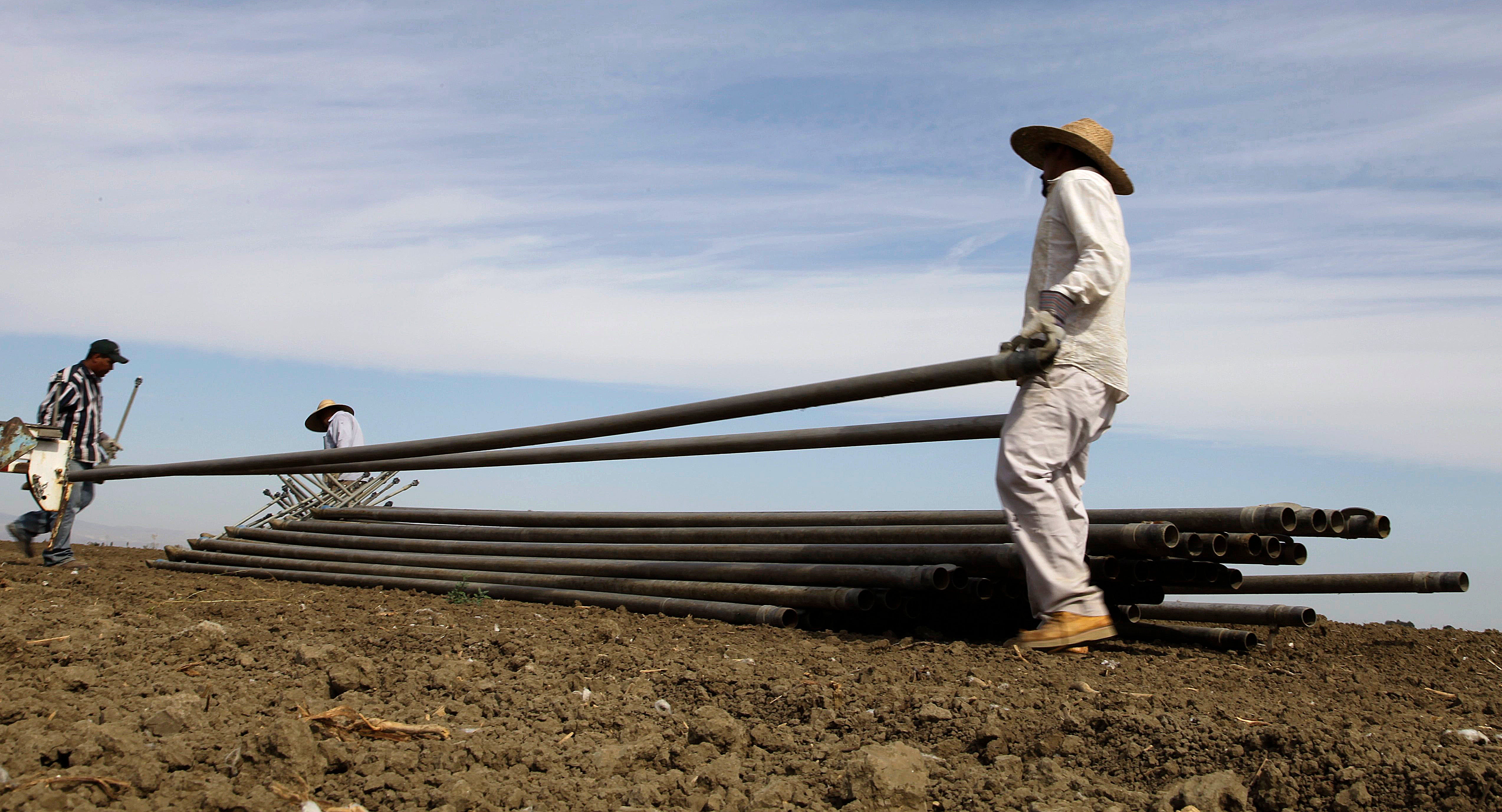California judge rejects water deal for major farm supplier
A California judge has rejected a contract granting permanent access to U.S. government-controlled water for the nation’s largest agricultural water supplier

Your support helps us to tell the story
From reproductive rights to climate change to Big Tech, The Independent is on the ground when the story is developing. Whether it's investigating the financials of Elon Musk's pro-Trump PAC or producing our latest documentary, 'The A Word', which shines a light on the American women fighting for reproductive rights, we know how important it is to parse out the facts from the messaging.
At such a critical moment in US history, we need reporters on the ground. Your donation allows us to keep sending journalists to speak to both sides of the story.
The Independent is trusted by Americans across the entire political spectrum. And unlike many other quality news outlets, we choose not to lock Americans out of our reporting and analysis with paywalls. We believe quality journalism should be available to everyone, paid for by those who can afford it.
Your support makes all the difference.A California judge has rejected a federal contract granting permanent access to U.S. government-controlled water for the nation’s largest agricultural water supplier, saying it lacked details on costs and appropriate public notice.
Environmentalists had blasted the contract with Westlands Water District as a sweetheart arrangement designed to benefit corporate agricultural interests over environmental needs and taxpayers. It was crafted during the Trump administration under then-Interior Secretary David Bernhardt a former lobbyist for Westlands, a public entity based in Fresno that supplies water to private farmers.
“This was an effort to basically steal public resources and put them into private pockets,” said Stephan Volker, an attorney for the Winnemem Wintu Tribe, the North Coast Rivers Alliance and several other groups.
Westlands is evaluating the court’s ruling and may appeal if the case is dismissed, spokesperson Shelley Cartwright said. The water district rejects claims it received special treatment, with Cartwright saying it has “acted transparently” and followed the steps required by law.
Fresno County Superior Court Judge D. Tyler Tharpe declined Wednesday to validate the contract between Westlands and the federal Bureau of Reclamation, a requirement for it to be legal. Tharpe scheduled another hearing on Dec. 2 to potentially dismiss the case, which would send Westlands back to the drawing board.
The water Westlands doles out to its agricultural customers comes from the Central Valley Project, a federally run network of dams, tunnels and canals that brings water from California’s wetter north to the farm-rich San Joaquin Valley and heavily populated Southern California
The case raises questions about how much water major districts that serve corporate interests should be entitled to at the expense of tribes and environmental interests that rely on certain water flows, said Patricia Schifferle of Pacific Advocates, a natural resources consulting firm.
“The argument really is: Are we going to allocate that much water to Westlands Water District without conditions?” she said.
The contract gives Westlands access to 1.15 million acre-feet of water for irrigation and other purposes, though it doesn't guarantee all of that water in drier years like the one California is now experiencing.
An acre foot is 325,851 gallons (about 1.23 million liters). An average household uses one-half to one acre-foot of water a year, according to the Water Education Foundation, meaning the contract gave Westlands access to enough water to serve up to 2.3 million households.
Westlands has long operated on an interim contract basis, renewing its water deal with the federal government every two years. But a law passed at the end of the Obama administration allows contractors to convert those contracts into permanent ones, so long as they agree to pay back the federal government for the cost of the water infrastructure.
The deal also allows Westlands to get around acreage limits that have historically constrained how much water contractors can access.
The permanent contracts have to be validated by a state court, but Westlands moved ahead anyway in early 2020. Tharpe is the second state judge who ruled against it.
The first judge said Westlands brought forward an incomplete contract that lacked key details including how much money the district would pay the government and when. Westlands also failed to provide appropriate notice to the public and left the contract open ended, potentially allowing for later changes not subject to public scrutiny or court approval, the judge ruled.
Westlands moved forward anyway, finalizing the contract in early 2020. The district again sought approval. But Tharpe said the district's decision to move forward with a more detailed contract didn't change the fact that it initially sought approval for something incomplete. In his ruling, he again declined to validate the contract.
Meanwhile, environmental groups and other opponents charge Westlands isn't paying back all of what it owes the federal government for use of the water infrastructure. The Interior Department previously said Westlands owed the federal government $480 million. But Cartwright said the district has “fully repaid” its debt obligations with $210 million over three installments.
Opponents also say that Westlands isn't following environmental laws designed to protect fish populations like chinook salmon.
Westlands says it is following the same process as other water districts for converting its contract and that it's received no special treatment. “The suggestion that the permanent nature of the proposed Westlands repayment contract makes it an ‘unusually good deal’ is simply false,” the district wrote in a 2020 “fact sheet” about the contract.
Bureau of Reclamation spokesperson Mary Lee Knecht declined to comment because the issue still is being litigated.